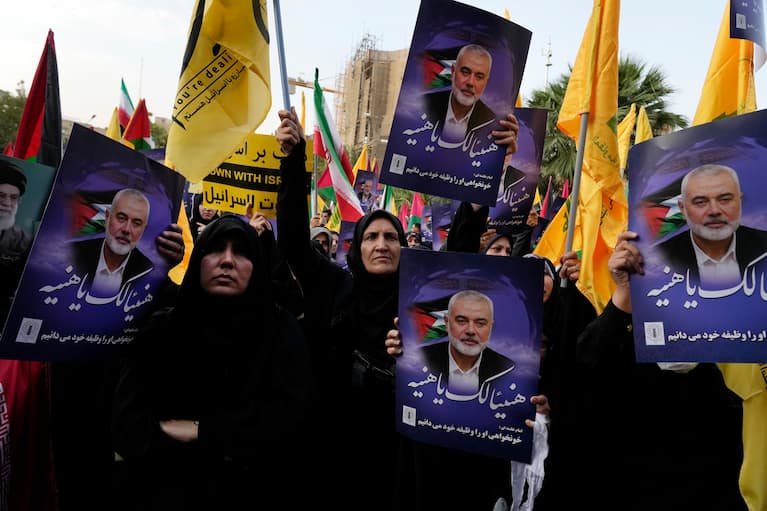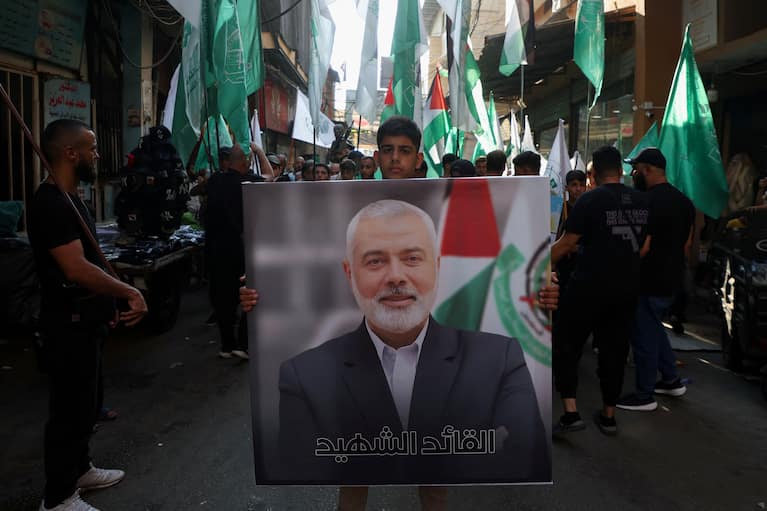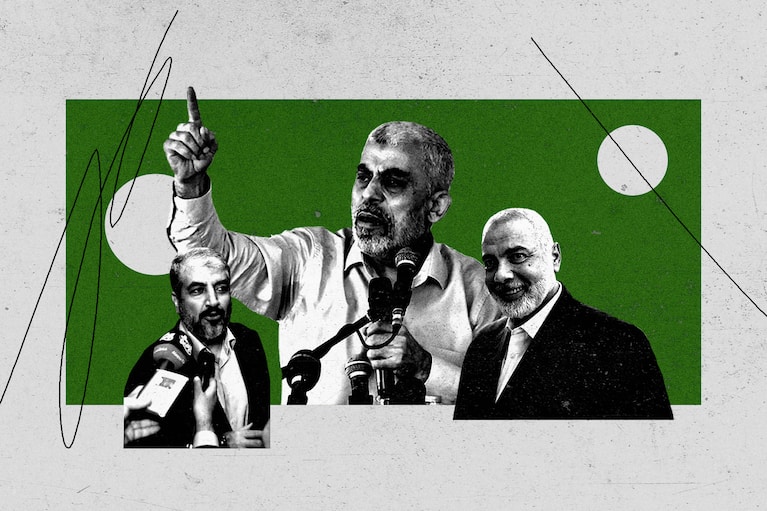BEIRUT — Thousands of people were injured across Lebanon on Tuesday when electronic pagers used by the militant group Hezbollah simultaneously exploded around 3:30 p.m., the group and Lebanese officials said, in what experts said may have been an unprecedented attack by Israel that possibly involved sabotaging the devices before they were delivered.
“Each one who received a new pager, throw it away,” said a voice message that was circulated to Hezbollah members, according to one of the members, who shared it with The Washington Post.
The suspected attack appeared to be the latest salvo in the nearly year-long conflict between Israel and Hezbollah tied to the war in Gaza. It triggered the worst mass casualty event in Lebanon of the war, leaving the country’s health system reeling: At least 2,800 people were injured across the country, mostly with wounds to the face, hands or stomach, Health Minister Firas Abiad said. At least nine people were killed.
Hezbollah blamed Israel for the explosions and vowed to retaliate. The Israeli military declined to comment Tuesday on whether it was responsible for the attack.
Health officials reported bedlam at hospitals as ambulances poured in and facilities were overrun. Casualties were reported in Beirut, the capital; towns in southern Lebanon, near the border with Israel; in the coastal city of Tyre; and in the northern part of the country. The wounded included children and elderly people.
The Ministry of Public Health said hospitals were being placed on “maximum alert” and requested that “all citizens who own wireless communication devices stay away from them.” Health workers were directed to go to work to provide “emergency treatment,” the ministry said in another statement, and appeals were being made for blood donations.
The U.N. security management system advised personnel in Lebanon to switch off their VHF (very high frequency) devices and remove all batteries until further notice, temporarily severing the agency’s radio network.
Hezbollah, in back-to-back statements, said that an unspecified number of pagers owned by “employees in various Hezbollah units and institutions” exploded at about 3:30 p.m. The cause was unknown, the group said, adding that a girl and her two brothers were among those killed.
The group was conducting a “wide-ranging” investigation to determine the reason for the explosions, the statement said, warning against the spread of “false and misleading information” that could serve Israel.
In a subsequent statement, Hezbollah said that “after examining all the facts, available data and information about the heinous attack that took place this afternoon, we hold the Israeli enemy fully responsible for this criminal aggression that also targeted civilians and led to the martyrdom of a number of people.”
Videos posted on social media showed what appeared to be pagers heavily damaged by explosions and instances in which the devices appeared to explode in shops while being carried by their owners. One video, filmed inside a supermarket, showed an explosion as people gathered around fruit carts. Afterward, a man can be heard yelling in pain as bewildered shoppers watch.
Footage from hospitals also showed people with severe injuries, such as missing fingers or deep gashes to their body, including badly injured children. Video filmed inside Bahman Hospital in Beirut’s southern suburbs depicted bedlam, as dozens of injured people crowd the hospital’s rooms and corridors. Some of the injured lie on the floor covered in blood, while others use paper towels to cover their wounds. Several more injured men are carried through the hospital entrance on gurneys or bloodied sheets as sirens ring out in the distance.
The American University of Beirut Medical Center received more than 190 patients and was operating at full capacity, the hospital said in a statement Tuesday night local time, adding that it was unable to receive additional casualties. Bloodied bandages could be seen outside as at least 20 ambulances arrived early Tuesday evening. An elderly woman, apparently unconscious, with cuts and burns, was wheeled to an ambulance so she could be transferred to another hospital.
Tensions between Israel and Hezbollah have soared after months of tit-for-tat strikes across the Lebanon-Israel border. Tens of thousands of people have been displaced in both countries. This week, top Israeli officials who met with a senior White House adviser said that military action against Hezbollah will be needed to allow thousands of residents to go back to their homes along Israel’s northern border, in a sign that Israel was shifting its focus from the war against Hamas in Gaza.
Hezbollah says it will halt its attacks against Israel if a cease-fire is reached in Gaza. But as U.S.-led negotiations between Hamas and Israel have faltered, the Biden administration, despite its efforts, has been unable to broker a truce between Hezbollah and Israel, amid fears that their conflict will tip the Middle East into a wider war.
In late July, Israel assassinated a senior Hezbollah commander in the suburbs of Beirut. Hezbollah’s retaliation included what it said was an attack on a sensitive Israeli intelligence site. On Tuesday, before the pager explosions, the Israel Security Agency said it had “thwarted” a planned Hezbollah attack on a “former senior official in Israel’s security establishment,” using a remote-controlled explosive device that it said was “known to be used by Hezbollah.”
Current and former U.S. and Israeli officials described the attack as unprecedented in scope and apparent sophistication. “My sense is that this was designed to send a message, and not necessarily operational preparation of the environment for a move into Lebanon,” said Marc Polymeropoulos, a former CIA senior operations officer who served in counterterrorism roles in the Middle East.
Israel delivered “a stark and brutal warning to Hezbollah that they have them totally compromised, and that war would be disastrous,” he said.
Emily Harding, deputy director of the International Security Program at the Center for Strategic and International Studies, said that while much remains unknown about Tuesday’s attack, it is likely that Israel infiltrated the supply chain that Hezbollah uses for its pagers, finding a way to physically rig them.
Although a cyberattack is possible, she said, it is unlikely given the “extremely low-tech” nature of the pagers, which Hezbollah members use in part to avoid digital surveillance.
Since pagers cannot capture sound and don’t have cameras, they present less of a risk than cellphones when it comes to surveillance of movements and meetings, she said.
Dmitri Alperovitch, chairman of the Silverado Policy Accelerator, a national security think tank, said: “This looks to be perhaps the most extensive physical supply-chain attack in history — substituting imported devices with those containing explosives and triggering them all at the same time through some sort of command and control channel.”
Still, the operation required “intelligence gain/loss decision-making,” he added, saying Israel would have had to weigh the benefits of wounding Hezbollah operatives against the benefit of “gaining access” to their communications devices for a longer period, which “could have perhaps produced even greater intelligence advantage.”
Lebanon’s education minister announced the closure of schools and universities in the country Wednesday, “in condemnation of the criminal act” by Israel, according to a statement. The casualties from the explosions included the son of a parliament member representing Hezbollah, and the Iranian ambassador to Lebanon, who was lightly wounded, Iranian media reported.
William Wechsler, senior director for Middle East programs at the Atlantic Council, said the pager explosions were “hugely embarrassing for Hezbollah” and could trigger a potentially substantive escalation.
Even though the explosions were “highly targeted,” the psychological impact of the attack could be more important than its practical implications. “Hezbollah will feel it needs to respond,” he said. Neither side wants a full war to break out, Wechsler said, but if it does, then casualties on both sides, including among civilians, will potentially be quite high.
Thanassis Cambanis, director of Century International, a global policy think tank, said it seemed “like Israel has launched the war it was hungering for. Hezbollah and Iran have exhibited a great deal of restraint until now. But at this point it’s clear that Israel is determined to escalate, with what its security establishment mistakenly believes will be a preemptive strike that limits Hezbollah’s ability to balance Israel.”
“I don’t believe that Israel will achieve its security goals; Hezbollah is strong, strategic and prepared — it will inflict serious damage on Israel in a full-out escalated war,” he said. “Civilians in Lebanon and also Israel will bear the worst brunt of this Israeli escalation.”
Fahim reported from Istanbul, Chason from Jerusalem and Nakashima from Washington. Imogen Piper in London, Cate Brown and Shane Harris in Washington and Niha Masih in Seoul contributed to this report.



